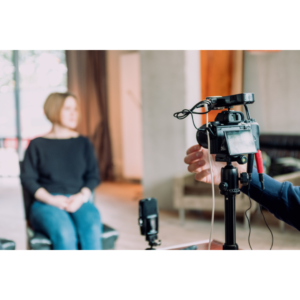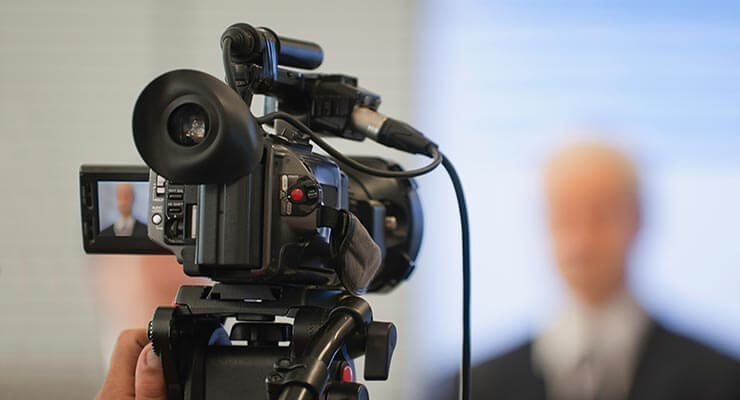Top-Notch Legal Videography for Hearings.
Top-Notch Legal Videography for Hearings.
Blog Article
The Duty of Legal Videography in Depositions and Trials
Legal videography has arised as a necessary tool in both depositions and tests, offering a multifaceted strategy to documenting witness testaments. As lawful specialists increasingly acknowledge its value, it triggers a deeper assessment of just how these visual documents can influence juror understandings and test end results.
Importance of Lawful Videography
Lawful videography plays an essential role in the documentation and discussion of depositions and trials. This specialized area incorporates technical abilities with lawful knowledge to develop a reputable record of proceedings that can dramatically affect situation outcomes. The visual aspect of legal videography improves the understanding of witness testament, enabling jurors and judges to observe not just the talked words yet also the temperament, feelings, and body language of the witnesses.

The value of legal videography extends beyond the court; it additionally plays a crucial duty in preserving proof for future reference, whether for allures or additional legal action. Its integration into the lawful procedure is essential for making certain a reasonable and accurate representation of the facts, eventually contributing to the pursuit of justice.

Refine of Legal Videography
While recording the subtleties of depositions and trials, the process of lawful videography entails numerous vital steps that ensure top quality, precise recordings. Initially, a professional lawful videographer prepares by reviewing the case products and comprehending the specific demands of the deposition or trial. This preparation includes acquainting themselves with the participants and the context, which aids in catching relevant information.
On the day of the recording, the videographer establishes up the essential equipment, which typically consists of high-def electronic cameras, microphones, and proper lighting. Ensuring optimum angles and audio top quality is critical, as it directly influences the efficiency of the recording. The videographer communicates with attorneys and participants to develop protocols, guaranteeing that every person understands the recording process.
Throughout the deposition or test, the videographer meticulously videotapes the process, paying very close attention to both verbal and non-verbal signs. legal videography. This consists of capturing the temperament and responses of witnesses and lawyers. After the session ends, the videographer might edit the footage for clearness and compliance with legal requirements, generating an end product that accurately shows the procedures for future recommendation and usage in lawful contexts
Benefits in Depositions
The consolidation of videography in depositions uses various benefits that boost the total process of gathering evidence. One primary advantage is the capacity to catch witness testimonies with aesthetic and auditory fidelity, giving a much more exact representation of the witness's attitude, tone, and body movement. This multidimensional approach enables attorneys and courts to analyze integrity better than conventional written records alone.
Additionally, videographed depositions work as an effective tool for protecting statement. Should a witness come to be not available for test, their tape-recorded deposition can be played in court, guaranteeing that their evidence remains obtainable and pertinent. This facet significantly lowers the danger of shedding important info that can impact case results.
Moreover, using lawful videography promotes better prep work for lawyers. Reviewing video clip footage permits lawful groups to examine and improve their techniques, recognizing toughness and weaknesses in their situations. This preparatory benefit can result in even more engaging presentations in court.
Last but not least, videography enhances the total expertise of the deposition procedure, instilling self-confidence in clients concerning the thoroughness of their lawful representation. By leveraging technology, attorneys can dramatically enhance the effectiveness of depositions.
Effect On Trials
In lots of tests, the integration of videography can significantly influence the discussion of proof and the court's perception. Legal videography catches witness testimonies and important proof in a vibrant format, enabling jurors to engage with the material on several degrees. This visual element improves the narration element of a test, providing context and emotional resonance that standard text-based evidence might do not have.
Moreover, video clip recordings can work as powerful tools for impeachment during interrogation. When disparities emerge between a witness's previous statements and their court room statement, video clip proof provides an objective recommendation that can guide jurors' opinions. This immediacy and clarity can reinforce the trustworthiness of a celebration's narrative while simultaneously undermining opposing arguments.
Additionally, the use of videography can assist improve intricate information, making it extra accessible to jurors who might have a hard time to realize detailed details presented solely via verbal testament. By integrating visuals with acoustic details, lawful videography can improve retention and understanding, eventually influencing the jury's decision-making process. Therefore, the impact of videography in trials prolongs past plain aesthetics; it plays navigate to this website a critical function fit the legal landscape and end results.
Future Trends in Legal Videography
As we look toward the future of lawful videography, a number of arising fads guarantee to reshape its duty within the court. One significant pattern is the integration of expert system (AI) in video clip analysis and editing - legal videography. AI can streamline the process of determining key minutes in tape-recorded depositions, allowing attorneys to rapidly access appropriate web content, thus improving performance in instance prep work
Additionally, the increase of online reality (VR) and augmented truth (AR) modern technologies is anticipated to change exactly how jurors experience evidence. By immersing jurors in a simulated environment, these innovations can give a much more profound understanding of complicated scenarios, causing even more informed deliberations.

In addition, the increasing demand for remote depositions, accelerated by the COVID-19 pandemic, will click this site likely continue. Lawful videographers will need to adjust to new software application and systems to ensure top notch recordings in online setups.
Last but not least, the expanding focus on data security will certainly demand stricter methods for storing and sharing video evidence. As the lawful landscape advances, legal videographers have to remain abreast of these patterns to preserve their significance and performance in my blog the judicial procedure.

Final Thought
In recap, lawful videography serves a vital feature in the judicial procedure, improving the integrity of depositions and tests. By recording the subtleties of witness statements, this medium not only protects essential evidence but also help in presenting information effectively to jurors. The value of aesthetic paperwork in examining reliability and helping with cross-examination can not be overemphasized. As modern technology remains to advance, lawful videography is poised to further transform its duty within the lawful landscape.
Report this page